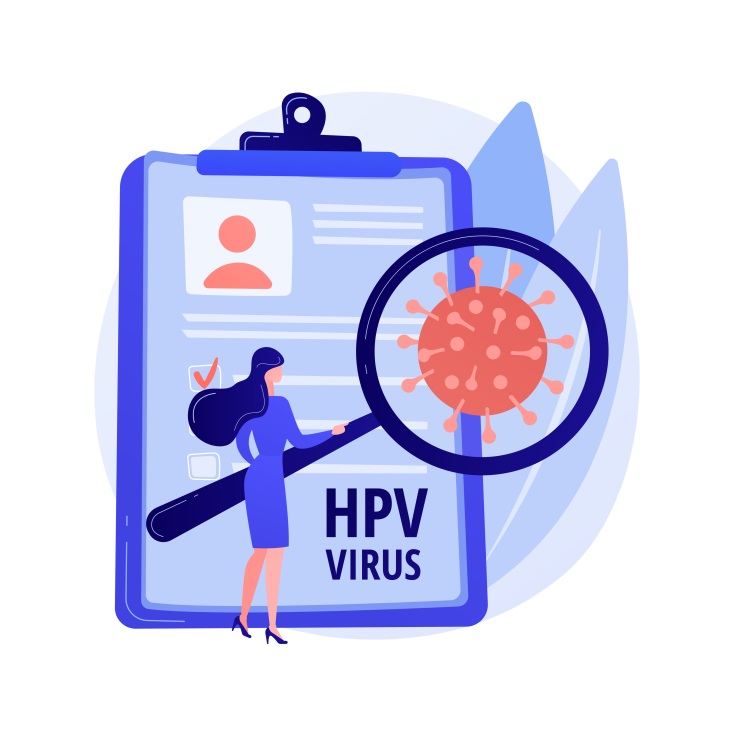What is human papillomavirus (HPV)?
HPV is a group of viruses that include more than 200 genotypes. Around 40 of these viruses infect human genital organs (including both male and female). HPV can be transmitted through sexual contact. Some viruses with high-risk genotypes can cause pre-cancerous cell changes and cancer (such as cervical cancer, vaginal cancer, and anal cancer). According to the research, more than 80 percent of sexually active women and men acquire HPV. 1
What cancers and diseases can be caused by HPV?
 |
| HPV can cause certain types of: |
| – Cervical Cancers |
| – Anal Cancers |
| – Vulvar Cancers |
| – Vaginal Cancers |
| – Genital Warts |

HPV can cause certain types of:
– Cervical Cancers
– Anal Cancers
– Vulvar Cancers
– Vaginal Cancers
– Genital Cancers
Can Cervical Cancer be prevented?
Yes. Scientific evidence has proofed that regular cervical cancer screening is an effective way to prevent cervical cancer. Other preventive measures to reduce the HPV infection and the progression from persistent HPV infection to cervical cancer are:
1. Get HPV vaccination as soon as possible
2. Practise safer sex (For example: Avoid having multiple sexual partners and use condoms)
3. Do not smoke
Resting ECG
ECG stands for electrocardiogram. The test measures the heart rhythm and is used to detect possible problems with the heart functions. Depending on the results of the resting ECG, your doctor will recommend other tests.
Who & When should get the HPV vaccine?
HPV vaccines can be given starting at age 9 years which works best when given before any exposure to HPV. The World Health Organization recommends children aged between 9 and 14 years, who are still not sexually active, should be listed as the target group for HPV vaccination to prevent cervical cancer. It is suggested that people with sexually experience to get vaccinated, as life and relationships change, people can acquire different strains of HPV over time. Getting vaccinated is one of the most important things you can do to protect men and women against new HPV infections.
Is Human Papillomavirus (HPV) vaccine safe and effective?
The 9-valent vaccine could prevent most of cervical cancers.
HPV vaccines have been used worldwide for many years. Clinical trials and post-marketing surveillance have shown that HPV vaccines have no obvious side effects. Side effects after a HPV vaccination tend to be mild, temporary, and like those experienced after routine vaccinations, such as soreness and swelling at the injection site, fever, headache and nausea.
After comprehensive review of scientific research and information on the adverse reactions caused by HPV vaccines, the World Health Organization and overseas health authorities have expressed HPV vaccines are safe and effective with scientific evidence.
1. Ryser, M.D., et al. (2015). PLoS Comput Biol 11(3): e1004113.
Unit 2102-07, 700 Nathan Road, Mong Kok
T: +852 2331 8160
T: +852 2147 3838

 ENG
ENG 繁
繁 简
简